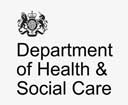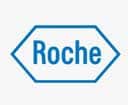
Whether you are planning to travel soon and want to know how to get the required PCR Travel test or just learn how to prevent yourself from getting the disease, this article will provide the information you need about CBC test cleanliness policies.
When to Use It
You may wash your hands before a CBC test using water and soap. Both ways of disinfecting can protect you from getting sick with covid or other infections. The perfect way to clean your hands is by using a hand disinfectant. This article explains how and when to use it. It’ll also clarify when to wash your hands instead of using shop germicide. Plus, you’ll learn how to defend yourself from viruses and bacteria outbreaks.
Most items linked to COVID-19 show the same trend. Huge sales have emptied the shelves of retailers selling cleaning supplies. The market trend related to the disease has imposed excessive rates from third-party resellers.
How does hand antiseptic protect you and keep your CBC sample clean?
A hand cleaner is an excellent way to scrub your hands because you won’t need soap and water. Some antibacterial gel is used on the go. They include ethyl alcohol and isopropyl alcohol. You may use both to destroy bacteria and viruses in your body. Alcohol kills germs on your skin. It cuts the defensive layer of proteins for microbes and dissolves their membranes.
Hand sanitiser vs Washing your hands Before COVID
Most antiseptic liquids aren’t as effective at removing germs as cleaning hands with soap and water. The CDC claims washing your hands and killing such pathogens is safer. Some people still clean their hands until the sanitiser dries out. Whether the hands are filthy or greasy, hand disinfectant would not work. Besides, they can not absorb dirt and grease—this is what soap does.
When should you use it?
PCR Travel Test is one way to identify if you contain this illness. But as they always say, prevention is better than cure, and alternative ways would save you a lot of money. Again, according to the CDC, you can use hand sanitiser only when soap and water are unavailable. It would help if you never used greasy or filthy hands for a hand cleanser. Instead, you can use soap and water. Can hand gel products protect you from bacteria? Healthcare personnel have approved hand gel products for use in clinical environments. So it prevents the transmission of various bacteria and germs. When used correctly and in the right situations, hand antiseptic will help protect you against infections.
Sterilisers can protect you from both viral and bacterial diseases. Add at least 60% alcohol to a hand disinfectant, use the prescribed volume, and rub it in thoroughly. It would help to wait for it to dry before resuming your work. Due to bacterial tolerance, sanitiser can raise the risk of covid. Hand steriliser has also been less effective at avoiding illness than handwashing. Yet, the data is vague so far, and it’s also safer to use hand sanitisers with no soap and water.
The best way to protect yourself from sickness
The best protection during the cold and flu season is a flu vaccine, checking results such as a CBC test. And daily hand washing for COVID tests. You may go with this with practices to get the digestive system primed to encounter diseases. These practices are home workouts, sleep, hydration, and eating healthy meals. Hand grooming (if possible, brushing and sanitising) can be your daily routine. After using the toilet, you can wash their hands and manage some garbage before and after feeding, after handling an animal or animal food or toys, and after treating a wound. Safety measures include disinfecting all devices and staying away from others. Others are avoiding crowded environments, such as public transit, where possible.







